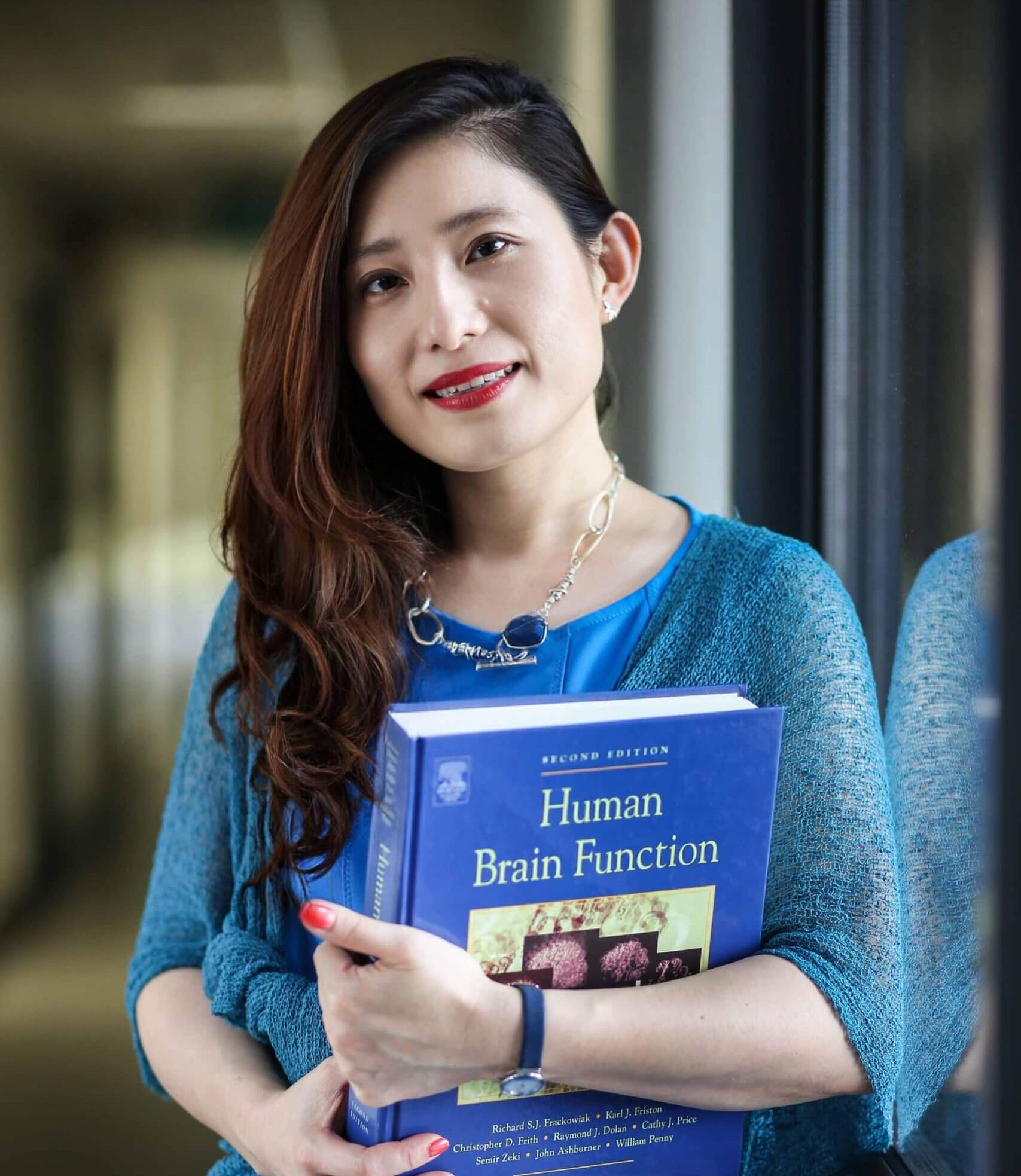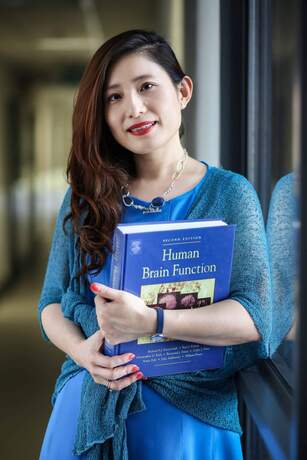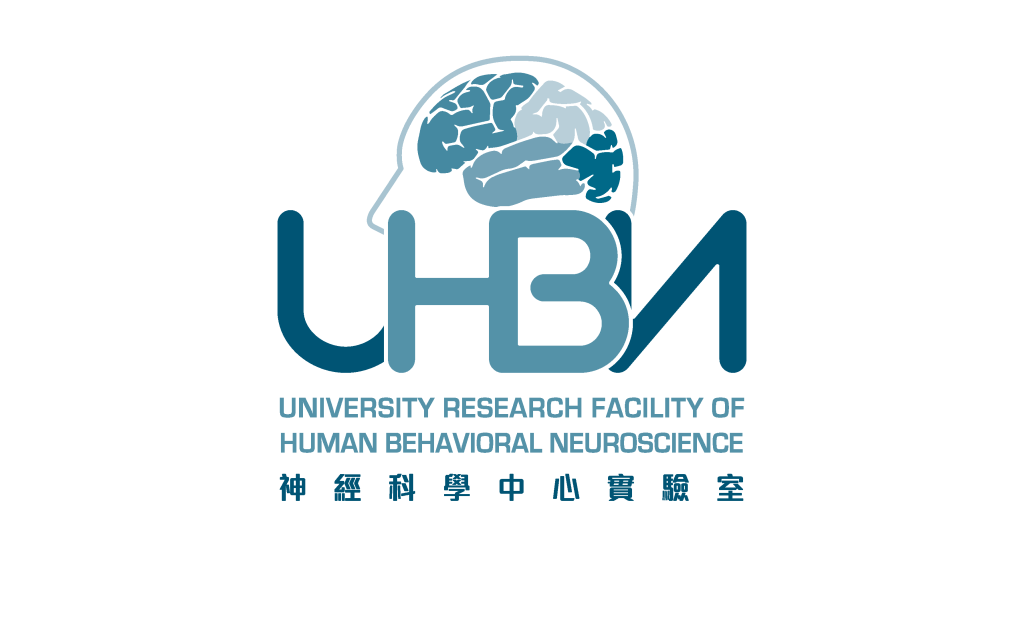Discover insights from global leaders in brain development, neuroimaging, and cognitive neuroscience.
Keynote Speakers
Featured Speaker
Leading Minds, Defining Tomorrow’s Neuroscience
Experience groundbreaking insights from a world-class lineup of keynote speakers and thought leaders shaping the future of developmental neuroscience.

Professor
Michael THOMAS
Michael THOMAS
Professor of Cognitive Neuroscience, School of Psychological Sciences,
Birkbeck University of London

Professor
Annabel Shen-Hsing CHEN
Annabel Shen-Hsing CHEN
Director of the Centre for Research and Development in Learning,
Chair Professor of Psychology, School of Social Sciences,
Nanyang Technological University

Professor
Chetwyn Che Hin CHAN
Chetwyn Che Hin CHAN
Vice President (Research and Development),
Chair Professor of the Department of Psychology,
The Education University of Hong Kong
Featured Speaker
Visionary Speakers, Transforming Developmental Neuroscience

Professor Michael THOMAS
Professor of Cognitive Neuroscience, School of Psychological Sciences, Birkbeck University of London
Speaker Bio:
Professor Michael S. C. Thomas is a Professor of Cognitive Neuroscience at Birkbeck University of London.
Since 2010, he has served as Director of the Centre for Educational Neuroscience, a cross-institutional research centre that promotes translational research between neuroscience and education, aiming to develop new transdisciplinary frameworks within the learning sciences.
In 2003, Professor Thomas founded the Developmental Neurocognition Laboratory within Birkbeck’s internationally renowned Centre for Brain and Cognitive Development.
His research uses a multi-method approach—including behavioural analysis, neuroimaging, computational modelling, and genetics—to explore the cognitive and neural bases of individual differences in learning and development.
In 2006, his lab was co-recipient of the Queen’s Anniversary Prize for Higher Education for the project “Neuropsychological work with the very young: understanding brain function and cognitive development.”
Professor Thomas is a Chartered Psychologist, a Fellow of the British Psychological Society, a Fellow of the Association for Psychological Science, a Senior Fellow of the Higher Education Academy, and a board member of the International Mind Brain and Education Society.
Title:
The Impact of AI to Education and Our Strategies
Abstract:
The current Artificial Intelligence is essentially data-driven AI, so called data intelligence. The surge in data intelligence has brought profound insights, prompting us to rethink our understanding about science and data. AI itself is a new technological revolution, characterized by two significant features: first, the development of science and technology has shifted from the traditional “science leading technology” to “technology driving science”; second, the “new empiricism” calls for “new rationalism,” with new sciences on the horizon. Data is a new power; data is to digital transformation just likes what electricity is to electrification, data will usher humanity into the digital civilization. In the AI era, there is a need for new educational philosophies, with innovation becoming the theme of education. The digital transformation of education presents an opportunity for its development, and data empowering and technology boosting is a prerequisite for achieving REally Smart Online Learning (RESOLE) platforms.

Professor Annabel Shen-Hsing CHEN
Director of the Centre for Research and Development in Learning,
Chair Professor of Psychology, School of Social Sciences,
Nanyang Technological University
Speaker Bio:
Professor Annabel Chen is a clinical neuropsychologist (licensed in Clinical Psychology, USA; Singapore Registry of Psychologists) with experience working across both adult and child populations. She earned her Doctorate in Clinical Rehabilitation Psychology from Purdue University at Indianapolis. Following her clinical internship at West Virginia University School of Medicine, she completed a post-doctoral clinical residency in adult clinical neuropsychology at the Medical College of Wisconsin.
She later became a post-doctoral research affiliate at the Lucas MRS/I Center at Stanford University School of Medicine and served as an assistant professor in the Graduate Clinical Psychology programme at National Taiwan University. Upon joining Nanyang Technological University (NTU), she held the role of Associate Professor and Associate Chair for Research in the School of Humanities and Social Sciences. She currently serves as Director of the Centre for Research and Development in Learning (CRADLE).
Professor Chen’s main research interests involve investigating the neural substrates underlying higher cognition, particularly in the cerebellum. Her work also explores changes in cognitive processes associated with healthy aging and dementia, using advanced neuroimaging techniques such as fMRI, diffusion MRI, and Transcranial Magnetic Stimulation (TMS). Her research aims to develop neuroimaging markers within the cerebro-cerebellar circuitry to inform evidence-based interventions for neurodevelopmental (e.g., schizophrenia, dyslexia, autism) and neurodegenerative (e.g., dementia, aging) conditions.
Title:
The Impact of AI to Education and Our Strategies
Abstract:
The current Artificial Intelligence is essentially data-driven AI, so called data intelligence. The surge in data intelligence has brought profound insights, prompting us to rethink our understanding about science and data. AI itself is a new technological revolution, characterized by two significant features: first, the development of science and technology has shifted from the traditional “science leading technology” to “technology driving science”; second, the “new empiricism” calls for “new rationalism,” with new sciences on the horizon. Data is a new power; data is to digital transformation just likes what electricity is to electrification, data will usher humanity into the digital civilization. In the AI era, there is a need for new educational philosophies, with innovation becoming the theme of education. The digital transformation of education presents an opportunity for its development, and data empowering and technology boosting is a prerequisite for achieving REally Smart Online Learning (RESOLE) platforms.

Professor Chetwyn Che Hin CHAN
Vice President (Research and Development),
Chair Professor of the Department of Psychology,
The Education University of Hong Kong
Speaker Bio:
Professor Chetwyn Chan is Vice President (Research and Development) and Chair Professor of Psychology at The Education University of Hong Kong. He obtained his Ph.D. in Educational Psychology from the University of Alberta in 1995 and currently holds the Peter T. C. Lee Endowed Chair Professorship in Psychology.
Professor Chan was elected Fellow of the American Psychological Association in 2008 and the Hong Kong Psychological Society in 2007. He received the Global Leadership in Rehabilitation Science Award from Virginia Commonwealth University in 2008, and the Alumni Honour Award from the University of Alberta in 2011 for his contributions to research and education in rehabilitation across Asia.
His research team received the First Prize in Science and Technology from the Chinese Association of Rehabilitation Medicine in 2018 for post-stroke cognitive assessment and intervention innovation. In 2019, they were awarded the Second Class State Scientific and Technology Progress Award by the State Council of the People’s Republic of China for integrating Chinese medicine into innovative post-stroke rehabilitation.
Professor Chan’s research focuses on the mechanisms of human learning, particularly perceptual and cross-modal learning, using brain imaging, EEG, and behavioral methods. He applies these findings to understand and enhance the functional capabilities of individuals with disabilities and older adults. He has published over 200 research papers and secured more than HK$20 million in competitive R&D funding.
He currently serves as Chief Specialty Editor of Frontiers in Rehabilitation Science and Associate Editor of the Journal of Sports and Health Science.
Title:
The Impact of AI to Education and Our Strategies
Abstract:
The current Artificial Intelligence is essentially data-driven AI, so called data intelligence. The surge in data intelligence has brought profound insights, prompting us to rethink our understanding about science and data. AI itself is a new technological revolution, characterized by two significant features: first, the development of science and technology has shifted from the traditional “science leading technology” to “technology driving science”; second, the “new empiricism” calls for “new rationalism,” with new sciences on the horizon. Data is a new power; data is to digital transformation just likes what electricity is to electrification, data will usher humanity into the digital civilization. In the AI era, there is a need for new educational philosophies, with innovation becoming the theme of education. The digital transformation of education presents an opportunity for its development, and data empowering and technology boosting is a prerequisite for achieving REally Smart Online Learning (RESOLE) platforms.

